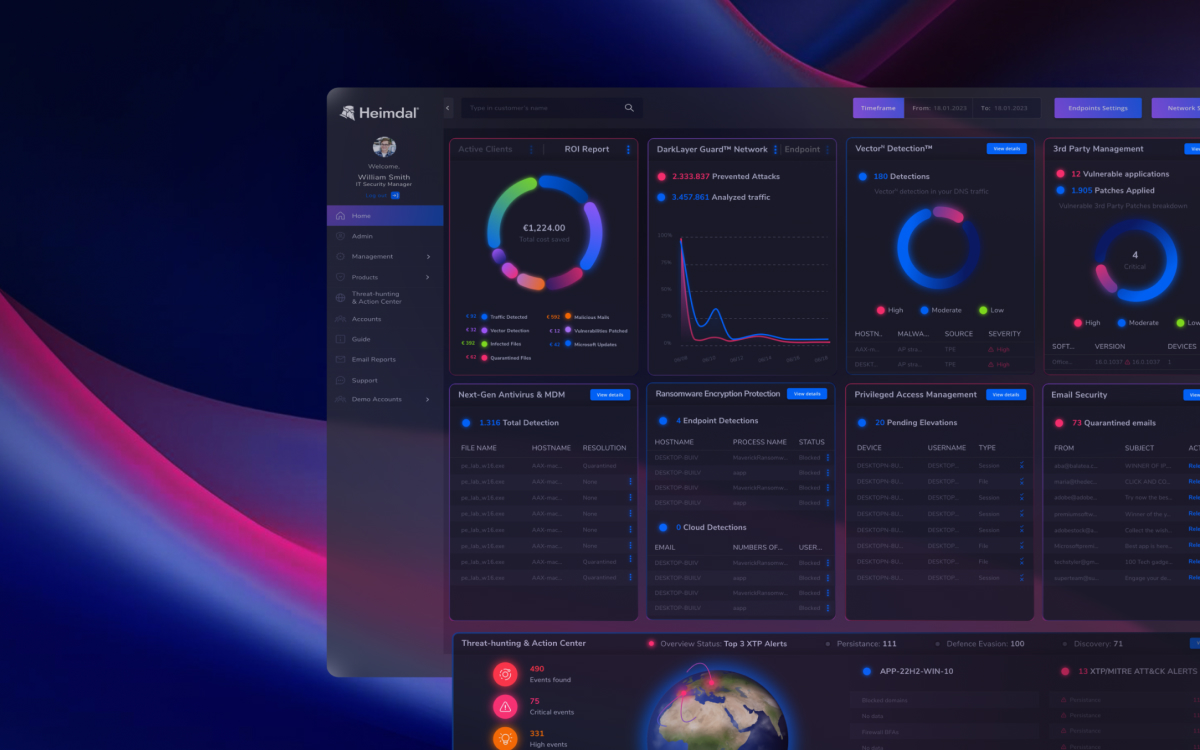While Fortinet offers strong endpoint protection and good integration, it has a few drawbacks including management complexities and also lacks OS compatibility checks.
This article reviews the top 10 competitors and alternatives to Fortinet, showcasing options that might provide better value, simpler use, and smoother integration with your systems.
But before that, here’s a quick glance to the best Fortinet competitors:
- Heimdal®: Best for proactive threat prevention and automated patch management. Heimdal® excels with advanced machine learning for threat detection and easy, automated updates, offering robust and user-friendly protection.
- Cisco: Best for extensive range of high-performance security products and seamless integration with existing network infrastructure.
- Palo Alto Networks: Best for advanced cloud security and integrated threat prevention across networks, endpoints, and clouds.
- Sophos: Best for simplified, centralized management with strong endpoint protection and synchronized security features.
- Check Point: Best for unified security management with advanced threat prevention and comprehensive protection across multiple layers.
- Juniper Networks: Best for high-performance, scalable security solutions with advanced threat prevention and integration with networking products.
- Barracuda: Best for affordable, easy-to-use security solutions with strong email protection and backup capabilities.
- SonicWall: Best for comprehensive network security features with user-friendly deployment and management.
- WatchGuard: Best for simplified, multi-layered security with integrated UTM services ideal for small and medium-sized businesses.
- Netgate pfSense: Best for highly customizable and flexible open-source firewall and router solution with extensive feature set.
10 Fortinet Competitors and Alternatives
1. Heimdal®
Heimdal® is recognized for its innovative and proactive approach to cyber threat management. It provides a comprehensive suite of security solutions designed to protect endpoints, networks, and cloud environments.

Heimdal® combines advanced threat prevention, detection, and response capabilities with automated patch management to offer a robust security posture for businesses of all sizes.
The main reason Heimdal® is a great Fortinet alternative is that according to Gartner Peer Insights, Heimdal® excels in user satisfaction with its proactive security measures and real-time alerts.
While Fortinet is recognized for its robust endpoint protection and effective integration with other tools, it struggles with management complexity and lacks some critical functions, such as OS compatibility checks.
Heimdal®, on the other hand, offers straightforward, high-quality endpoint protection with minimal negative feedback, making it a strong choice for users who value ease of use and proactive threat detection.
Key Features:
- Threat Prevention: Uses advanced machine learning algorithms to detect and block malware, ransomware, and phishing attempts proactively.
- Endpoint Detection and Response (EDR): Offers real-time monitoring and deep analysis of endpoint activities, enabling rapid detection and response to potential threats.
- Patch Management: Automates the patching process for both operating systems and third-party applications, reducing vulnerabilities and ensuring systems are up-to-date.
- DNS Security: Provides protection against DNS-based attacks and ensures secure and filtered web traffic to prevent malicious activity.
- Ransomware Encryption Protection: Continuously monitors for ransomware-like behavior and blocks unauthorized encryption attempts to safeguard data.
- Email Security: Protects against email-borne threats, including phishing, spam, and malware, ensuring secure email communication.
- Threat Intelligence: Leverages a global threat intelligence network to stay ahead of emerging threats and deliver timely updates to its security solutions.
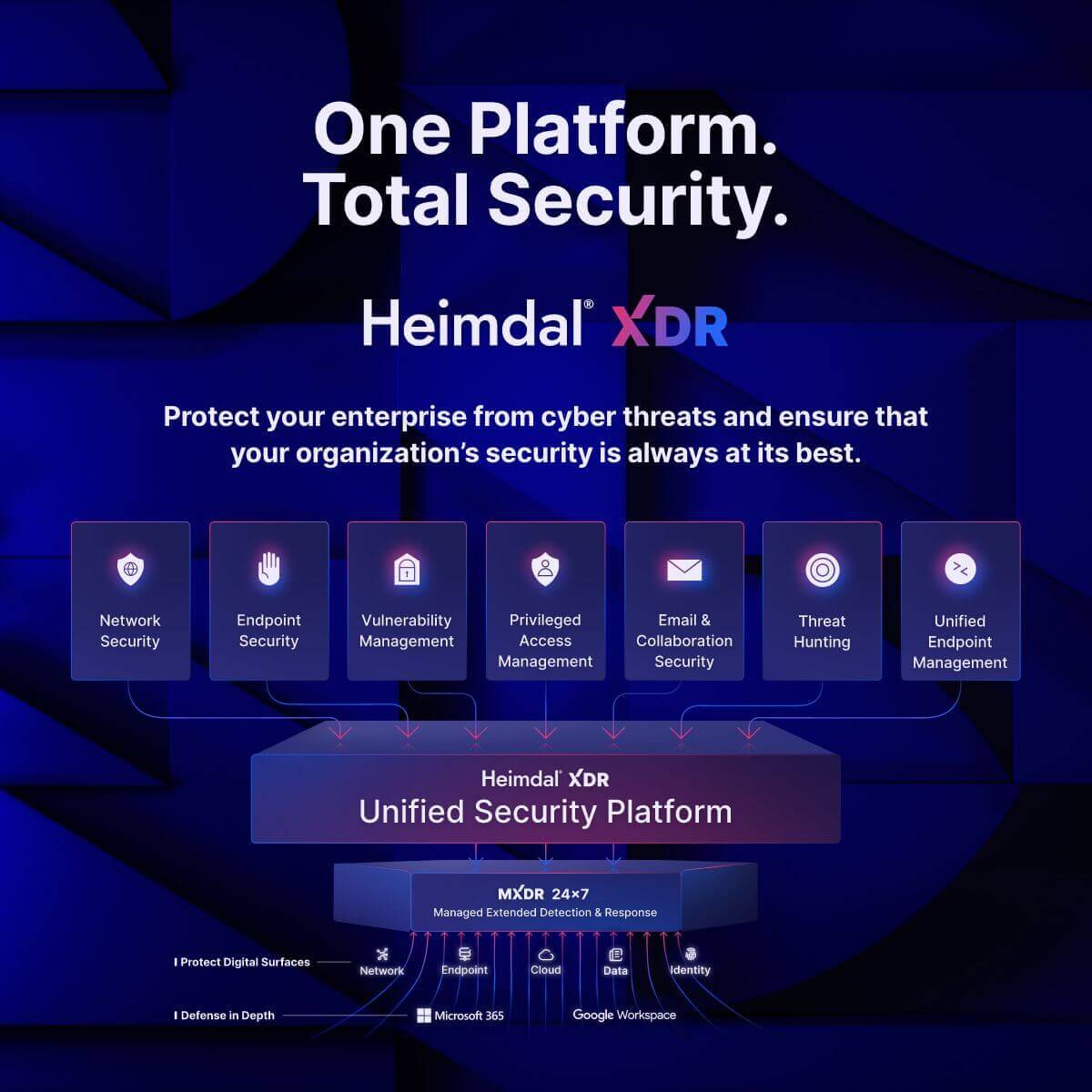
Pros:
- Strong focus on proactive threat prevention.
- Comprehensive endpoint and network protection.
- Automated patch management reduces administrative overhead.
- Robust DNS security and email protection features.
Cons:
- New users may need time to become proficient with the system.
- A stable internet connection is essential for optimal operation.
Pricing:
Heimdal® offers customized pricing that fits your specific business requirements and usage patterns. You can also book a demo to see Heimdal® in action before making any commitments.
I’ve gradually been moving all of my endpoints over to Heimdal®. Mainly just using the NGAV, Ransomware Encryption Protection, Patch Management and MXDR. I’ve had a very positive experience of both the software and the company. Heimdal® are very responsive to suggestions and there’s lots planned in the roadmap.
2. Cisco
Cisco Systems offers a vast array of products and services designed to enhance network security, ensure secure access, and provide robust threat intelligence.
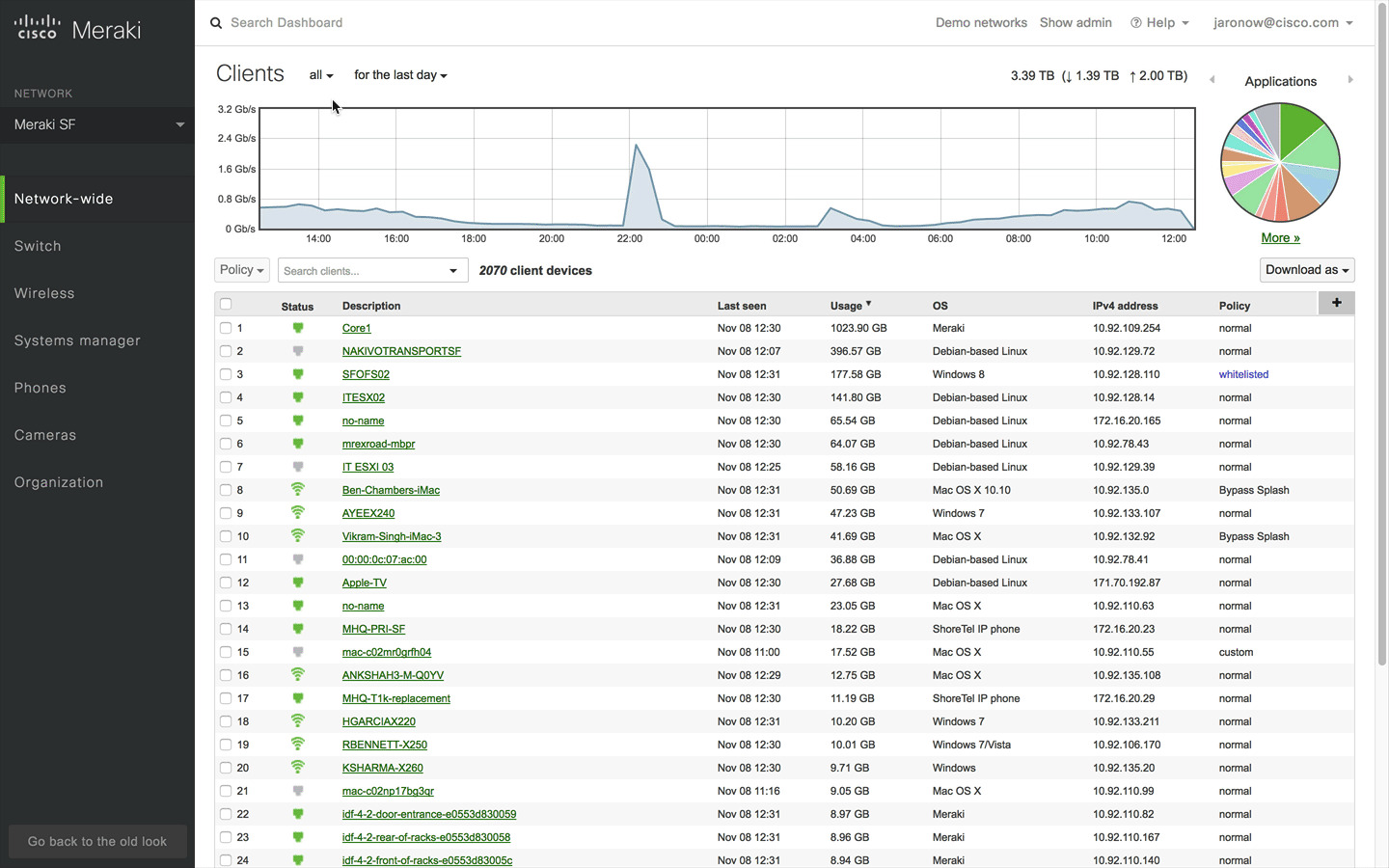
Cisco’s security portfolio includes next-generation firewalls, intrusion prevention systems, secure access solutions, and advanced malware protection.
Key Features:
- Next-Generation Firewalls (NGFW): High-performance firewalls with integrated threat intelligence and advanced threat prevention capabilities.
- Secure Access: Comprehensive VPN and Zero Trust solutions to ensure secure remote access for users and devices.
- Advanced Malware Protection (AMP): Multi-layered malware detection and remediation to protect against a wide range of cyber threats.
- Stealthwatch: Network visibility and security analytics to detect and respond to threats in real time.
- Identity Services Engine (ISE): Simplifies identity management and network access control, ensuring only authorized users and devices can access network resources.
Pros:
- Extensive range of security products and solutions.
- Strong integration with existing Cisco network infrastructure.
Cons:
- Can be expensive, especially for small to medium-sized businesses.
- Complex licensing structures can be challenging to navigate.
Pricing:
Cisco’s pricing varies widely based on the product and scale of deployment.
We have had issues where the DNS does not resolve and it also has interfered with the VPN of some of our users. It has provided a good DNS resolution solution for a lot of the time but the times it doesn’t work or affects a system has cost us crucial lost time.
Cisco produces great equipment, but there are areas in need of improvement. TAC, licensing, and cost are a few of them. Our recent experience and that of others, TAC, could be better.
3. Palo Alto Networks
Palo Alto Networks specializes in advanced firewall and cloud security solutions. The company is known for its approach to security, combining machine learning, automation, and integration to deliver comprehensive protection across networks, clouds, and endpoints.
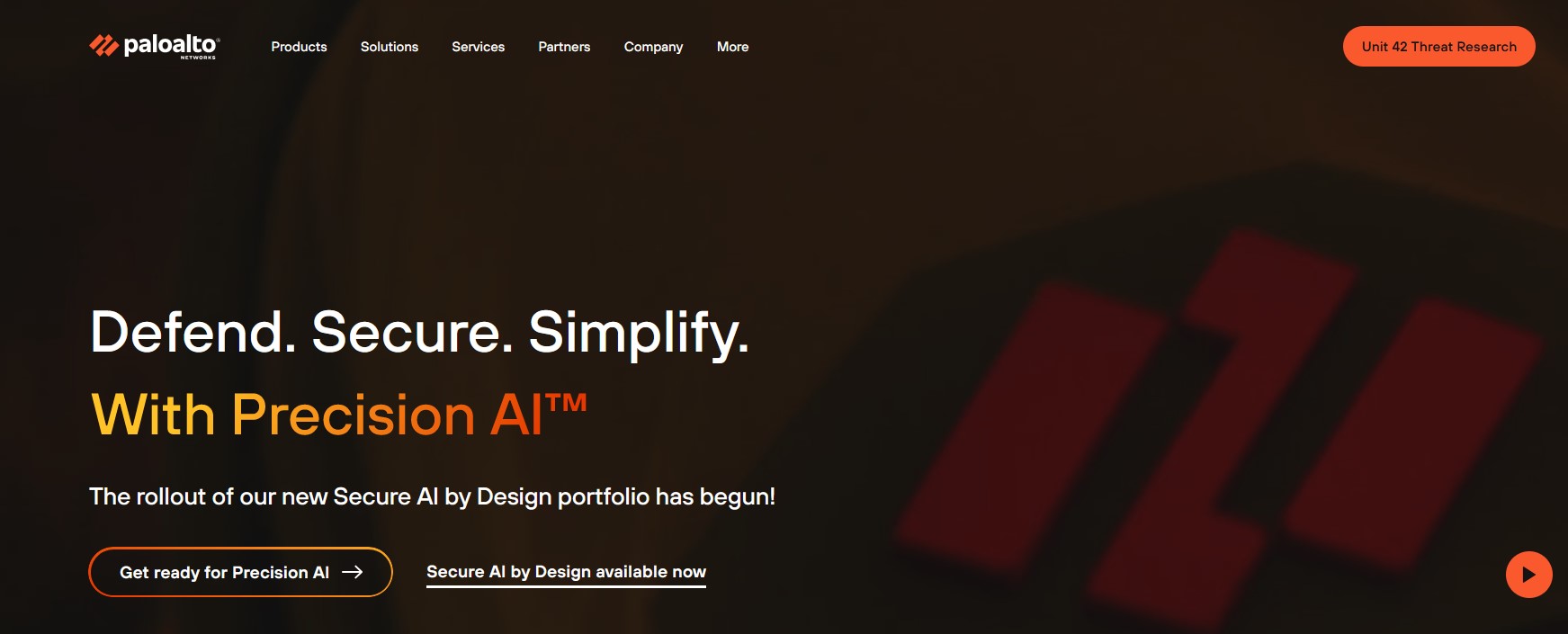
Palo Alto Networks offers a broad range of products, including next-generation firewalls, endpoint protection, cloud security, and extended detection and response (XDR) solutions.
Key Features:
- Next-Generation Firewalls: Industry-leading firewalls with advanced threat prevention, including intrusion prevention, application control, and URL filtering.
- Prisma Cloud: Comprehensive cloud security platform that provides visibility and threat prevention across multi-cloud environments.
- Cortex XDR: Extended detection and response solution that integrates endpoint, network, and cloud data to provide a unified view of threats and automate response actions.
- WildFire: Advanced threat intelligence and sandboxing service that analyzes suspicious files and URLs to detect and prevent zero-day threats.
- GlobalProtect: Secure remote access solution that ensures secure connections for remote users.
- AutoFocus: Threat intelligence service that provides insights into emerging threats and helps prioritize security efforts.
- Security Operating Platform: Integrates security solutions and leverages automation to streamline operations and improve security posture.
Pros:
- Strong cloud security offerings with Prisma Cloud.
- Continuous innovation and focus on cutting-edge security technologies.
Cons:
- Premium pricing can be a barrier for small businesses.
- Can be complex to deploy and manage, requiring skilled personnel.
Pricing:
Its pricing starts at $14,800.99 for a 3-year subscription license.
Although it provides the easiest and user-friendly web user interface, sometimes it asks too many questions to configure the complex countermeasures. Sometimes it does not give the required perimeters on the same window. We all know Linux is a highly customizable OS and we can customize in every manner so it’s hard to configure a guy to Palo Alto when any customization is required.
We looked at standardizing on PAN, but their SDWAN offering wasn’t up to the task. They tried to push the Cloudgenix stuff instead of the SDWAN that was built into the firewalls we already owned, but it became too expensive and too many devices. In addition to that, we’ve experienced that when it comes to renewals, PAN is extremely expensive. It seems like they are only interested in signing new business (and giving good discounts to new customers) and don’t care about existing customers.
4. Sophos
Sophos offers a wide range of products, including endpoint protection, firewall, encryption, and mobile security. The company emphasizes simplicity and effectiveness, making it easier for businesses to implement and manage robust security measures.
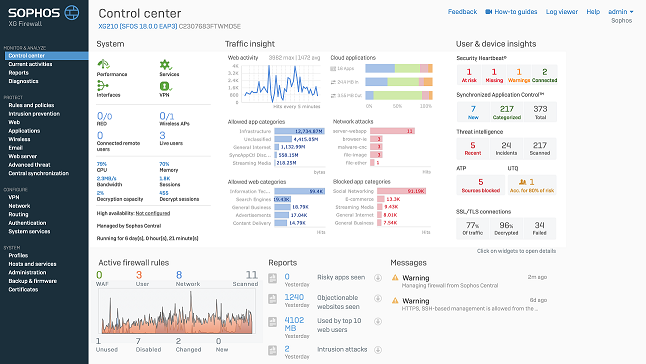
Sophos Central, the company’s unified management console, provides centralized control and visibility across all security products, enhancing operational efficiency and security posture.
Key Features:
- Intercept X: Advanced endpoint protection with deep learning AI for threat detection, exploit prevention, and anti-ransomware capabilities.
- Sophos Central: Unified cloud-based management console that simplifies security management and provides comprehensive visibility.
- XG Firewall: Next-generation firewall with deep packet inspection, intrusion prevention, and advanced threat protection.
- Synchronized Security: Integration between endpoint and network security products to share threat intelligence and automate responses.
- Email Security: Protection against email-borne threats, including phishing, spam, and malware.
- Mobile Security: Comprehensive security for mobile devices, including anti-malware, web protection, and device management.
- Encryption: Data encryption solutions to protect sensitive information and ensure compliance with regulations.
Pros:
- Strong endpoint protection with advanced AI capabilities.
- Centralized management through Sophos Central.
Cons:
- Some advanced features may require additional licensing.
- Can be less effective against highly sophisticated threats compared to premium competitors.
Pricing:
Sophos pricing varies based on the number of users and specific features. You need to contact their team for pricing.
Pretty much everything about uninstalling the existing EndPoint client and installing the new Sophos Central client. Even with an automated install, allow for at least 30 minutes per machine (and that’s if everything goes right). Often it doesn’t go right, and for Macs? It’s really a crap shoot whether you can get it on at all. And then to have it keep working? Most of the time Windows installs are OK. Macs? Eh, who knows? Again, not a lot of confidence in the product.
I’ve used them for the last 10 years. The first years were solid but in the last few years (this contract) I’ve seen your stated problem of systems stopping using it for no apparent reason and it has not been fixed. The other big problem is that it’s licensed by user name but administered by user name AND machine name. If you reissue a machine to a new user you now have two machine accounts for that machine. My other complaint is that it allows duplicate machine names on Macs. We’re looking for a replacement, too.
5. Check Point
Check Point Software is known for its advanced firewall technology and comprehensive security management capabilities. The company offers a broad range of products, including network security, endpoint protection, cloud security, and mobile security solutions.
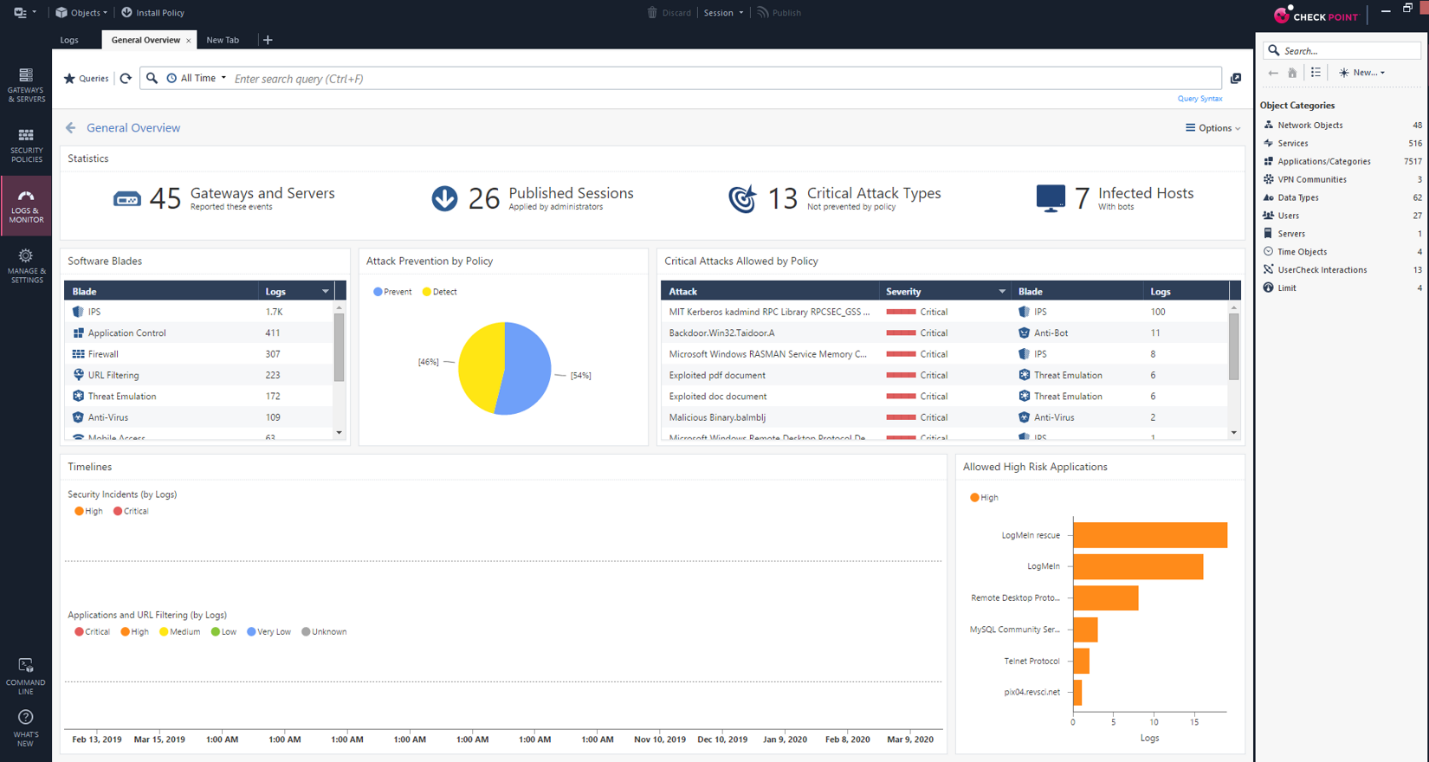
Check Point’s Infinity Architecture provides a unified security approach, integrating multiple security layers to protect against advanced threats.
Key Features:
- Next-Generation Firewalls: High-performance firewalls with integrated threat prevention, application control, and URL filtering.
- Infinity Architecture: Unified security architecture that integrates network, cloud, endpoint, and mobile security for comprehensive protection.
- CloudGuard: Advanced security for cloud environments, including public, private, and hybrid clouds.
- SandBlast: Threat prevention technology that provides advanced threat intelligence, sandboxing, and anti-ransomware capabilities.
- Endpoint Security: Comprehensive endpoint protection with anti-malware, firewall, and data protection features.
- Mobile Security: Protects mobile devices against malware, phishing, and network attacks.
- ThreatCloud: Global threat intelligence network that provides real-time updates and insights into emerging threats.
Pros:
- Unified security management through Infinity Architecture.
- Extensive range of security products for comprehensive protection.
Cons:
- Complex setup and configuration can be challenging for new users.
- Higher cost compared to some competitors, which may be a barrier for small businesses.
Pricing:
Its pricing is based on the number of features/services you use. It gives you an option to add the services you want to card and then you’ll see the final pricing.
Check Point Services offers huge antivirus and threat protection software that enables round-the-clock security for businesses and brings security compliance for businesses. It acts as the shield for IT systems from threat points and brings security strength to the IT system. Globally accepted and has immense good peer feedback. Its rating is quite good and well received by all kinds of clients”.
Support is lacking severely, TAC is nothing more than a human search robot looking for matching SK’s. There are exceptions. Also, if I got 10 cents each time the recommendation was to upgrade to the latest JHF, I’d be a rich man.
6. Juniper
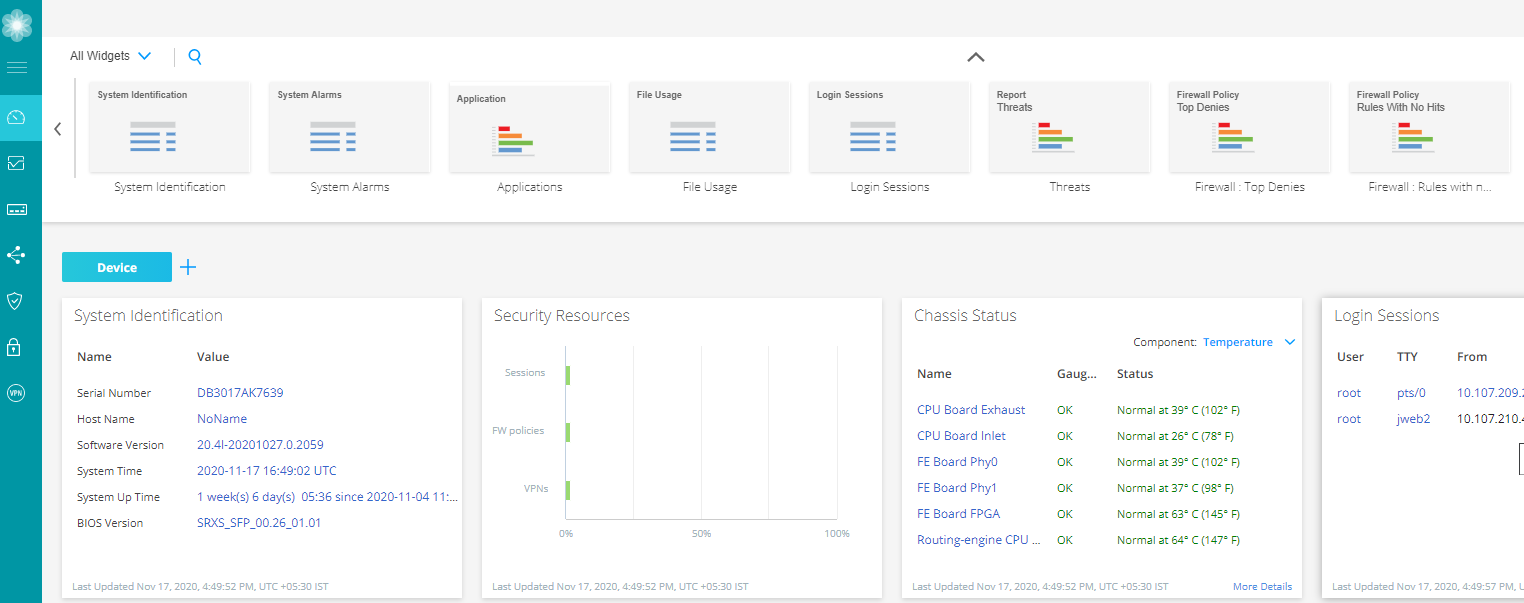
Juniper Networks is a provider of high-performance networking and cybersecurity solutions. The company focuses on simplifying network security and delivering high-speed protection. Juniper offers a range of products, including next-generation firewalls, secure access solutions, and advanced threat prevention.
Juniper’s security solutions are designed to integrate with its networking products, providing comprehensive protection and streamlined management for enterprises and service providers.
Key Features:
- SRX Series Firewalls: High-performance firewalls with advanced threat protection, application control, and UTM capabilities.
- Advanced Threat Prevention: Integrated threat intelligence and security services to detect and block sophisticated threats.
- Contrail Security: Comprehensive security solution for cloud and virtualized environments, providing visibility and control over network traffic.
- Secure Access: VPN and Zero Trust solutions to ensure secure remote access for users and devices.
- Sky Advanced Threat Prevention: Cloud-based service that uses machine learning and threat intelligence to detect and block malware and other threats.
- Mist AI: AI-driven network management and security to enhance visibility, automate tasks, and improve overall security posture.
- Security Director: Centralized management platform for simplified administration and policy enforcement.
Pros:
- High performance and scalability for both small and large enterprises.
- Advanced security features, including next-generation firewalls and intrusion prevention.
- Integration with other networking and security tools.
Cons:
- Higher initial cost compared to some competitors.
- Complex configuration and management for less experienced users.
- Limited support for third-party applications.
- Occasional issues with software updates and patches.
Pricing:
There’s no concrete information about pricing available on their website.
What’s most helpful about Juniper products depends on the specific networking challenges you face and the goals you want to achieve. For example, security features like firewalls and intrusion prevention systems, which help protect networks from cyber threats. I believe their scope is quite specific. Their products are only available at the enterprise level, which makes them expensive for the consumer needs. In fact, they may not have consumer focused products suitable for Home Networks.
Juniper CLI is a big learning curve. It may be easy enough to get configurations in place searching Google and doing translator tools, but troubleshooting is a whole different ball game. The speed you have in your current environment will not be nearly the same as what you’ll be doing in Juniper for potentially years to come.
7. Barracuda
Barracuda Networks offers a wide range of security solutions, including email protection, network security, and data protection. The company focuses on providing security solutions for small to medium-sized businesses.
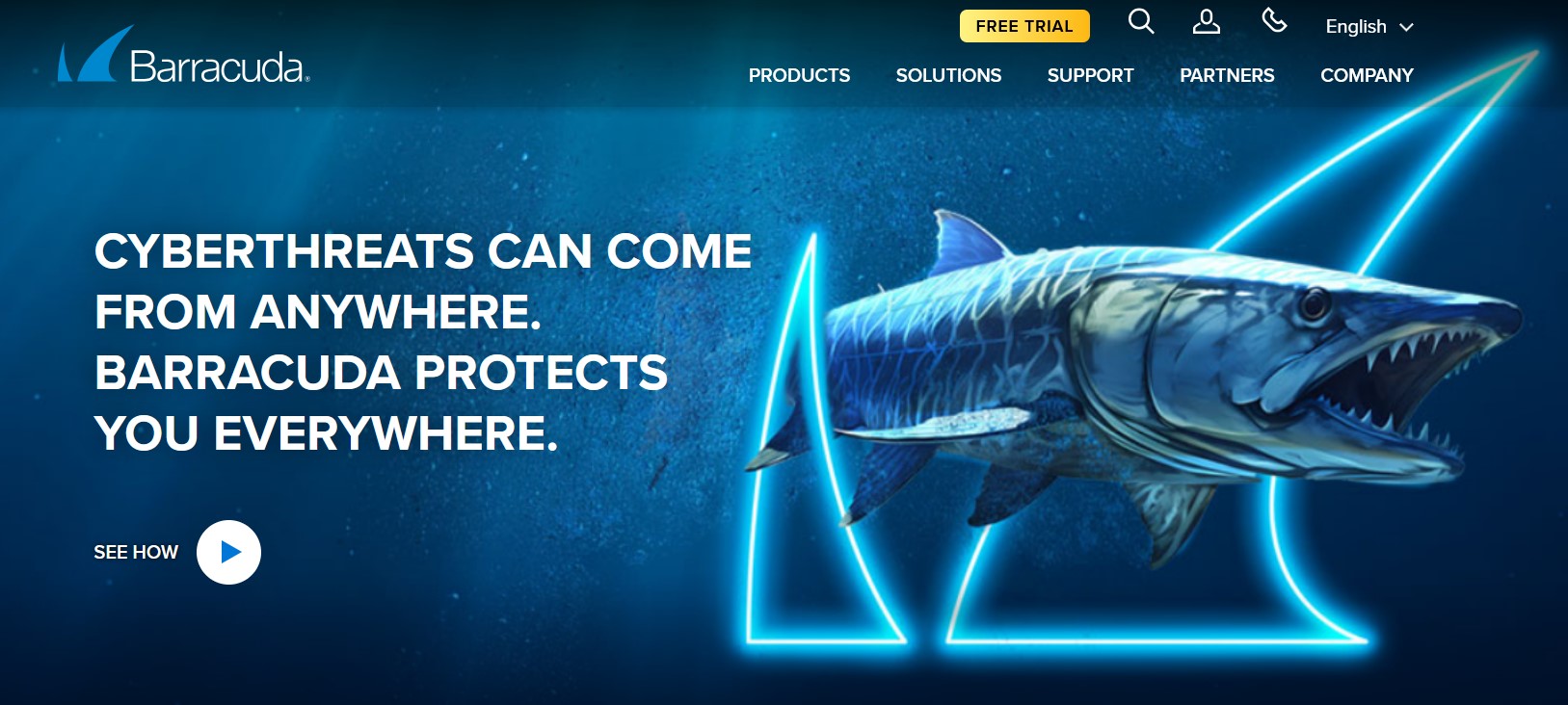
Barracuda’s products are quickly deployable and easily managed, ensuring protection without requiring extensive IT resources.
Key Features:
- Email Security Gateway: Comprehensive email protection against spam, phishing, malware, and other email-borne threats.
- CloudGen Firewall: Next-generation firewall with advanced threat protection, VPN capabilities, and SD-WAN functionality.
- Backup Solutions: Secure and reliable data backup and recovery solutions, including cloud-based and on-premises options.
- Web Application Firewall (WAF): Protects web applications from attacks, including SQL injection, cross-site scripting, and other vulnerabilities.
- Total Email Protection: Advanced email security suite that includes protection against phishing, account takeover, and data loss.
- RMM: Tools for managing and monitoring IT infrastructure, ensuring security and performance.
- Network Security: Comprehensive network protection solutions, including intrusion prevention, content filtering, and advanced threat detection.
Pros:
- Affordable pricing tailored to small and medium-sized businesses.
- Comprehensive protection with a broad range of security products.
Cons:
- Some advanced features may be limited compared to premium competitors.
- Can be less effective against highly sophisticated threats.
Pricing:
It offers customized pricing, you need to contact their team.
It’s really easy to go in and set up different backups, schedules, and appliances to be backed up. It is also pretty straightforward to go in and restore files. At one point, there were tutorials to go in and learn all kinds of stuff, but now it doesn’t seem like they have them anymore. There are a few details that are not as obvious that I can’t seem to find an answer for.
Barracuda has been releasing change after change without contacting us so we can be aware or let our customers know, but the big change they made over the weekend was the final straw. Proofpoint looks like the best option, though it sucks you pretty much have to get one of the two most expensive options for it to be decent and it’s a big jump in price from Barracuda.
8. SonicWall
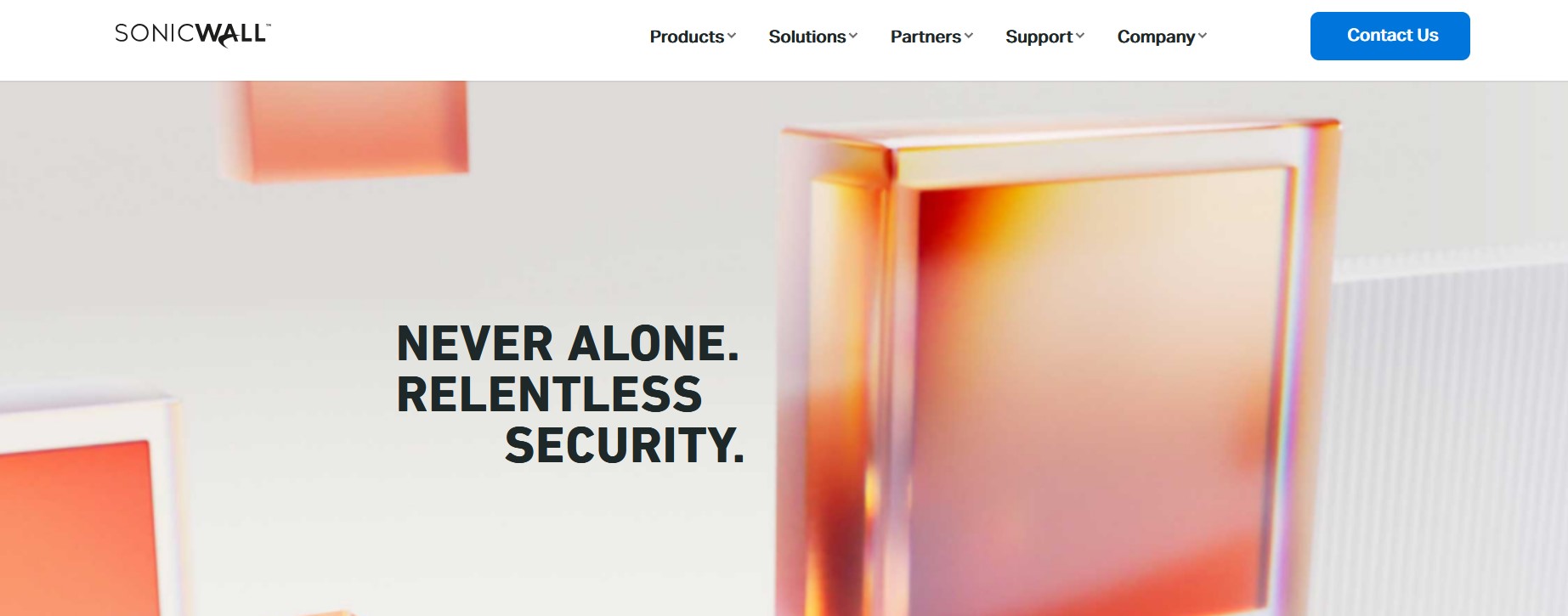
SonicWall is a cybersecurity provider known for delivering a wide range of network security solutions. With a focus on protecting small to medium-sized businesses and enterprises, SonicWall offers advanced security features designed to safeguard against various cyber threats.
Key Features:
- Next-Generation Firewalls: SonicWall’s NGFWs provide deep packet inspection, intrusion prevention, and SSL decryption to defend against sophisticated attacks.
- Unified Threat Management: Comprehensive security combining multiple security functions such as antivirus, anti-spam, and content filtering in one integrated platform.
- Secure Mobile Access: Solutions that ensure secure remote access for mobile workers, allowing them to connect safely to corporate networks.
- Advanced Threat Protection: Real-time threat intelligence and sandboxing to detect and mitigate zero-day threats and ransomware.
- Wireless Security: Secure Wi-Fi solutions to protect against wireless vulnerabilities and ensure secure mobile connectivity.
Pros:
- Comprehensive security features, including NGFW and UTM, for robust protection.
- Easy to deploy and manage with user-friendly interfaces.
Cons:
- Higher cost compared to some competitors.
- Occasional issues with firmware updates and support response times.
Pricing:
It offers customized pricing. For that, you need to talk to their expert team.
I like using SonicWall for its strong network security. The ability to detect and prevent cyber threats, along with its intuitive interface, makes security management easy. Additionally, its reliable performance ensures effective protection for enterprise networks. The SonicWall interface can feel a bit complicated at times, especially for users less familiar with advanced security settings. More simplicity in the user experience would be beneficial, although the protection it provides is still solid.
I really like Sonicwall. Granted their support sucks. But you can find a lot more community support for Sonicwall than you can for, say, Barracuda. For small to medium sized businesses they’re just great. I love them and I throw them into my SMB clients all the time. The features are there and they are easy to configure and manage. There’s a learning curve, for sure, but two really good YouTube channels are “Jean-Pierre Talbot” and “FirewallsDotCom”. Overall they’re a great option for SMB.
9. WatchGuard
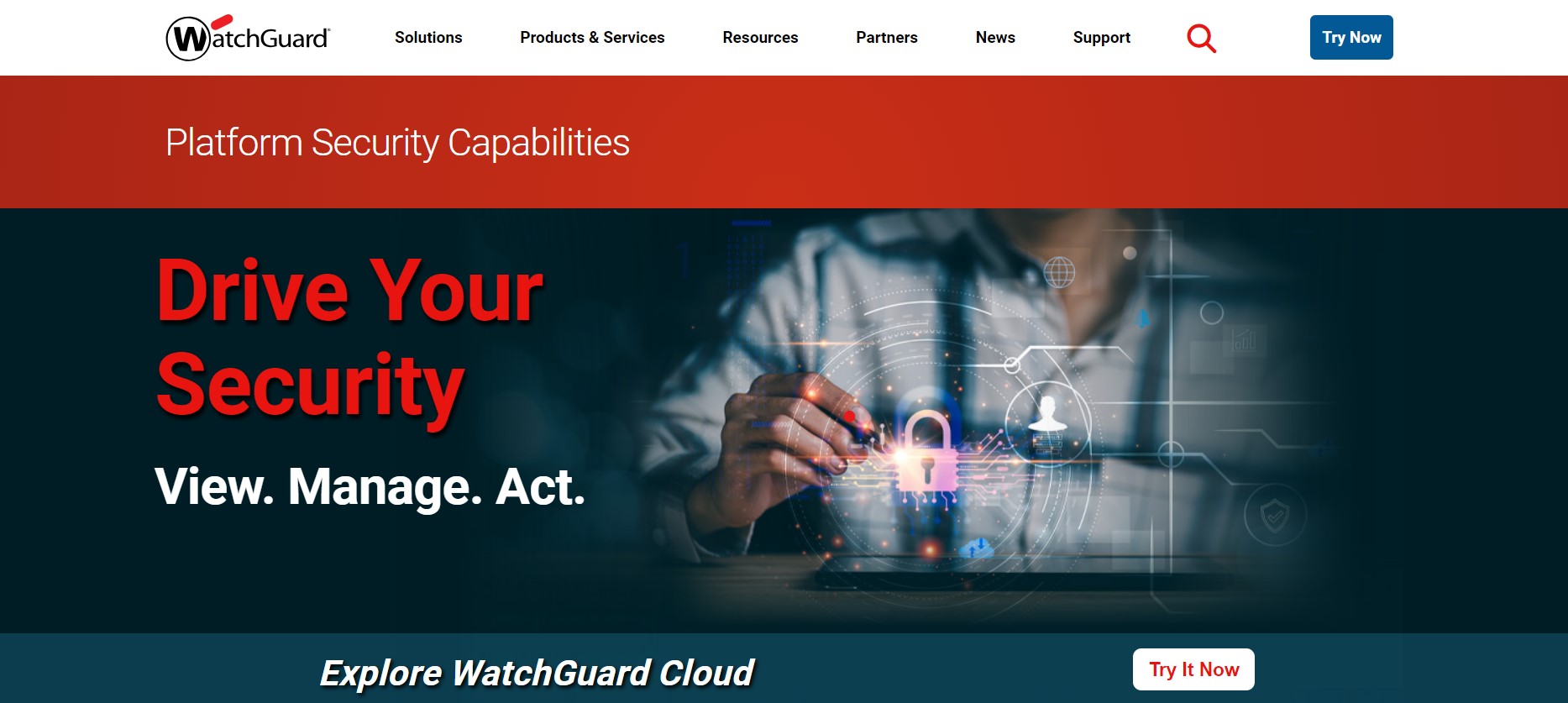
WatchGuard Technologies provides a comprehensive suite of security solutions tailored specifically for small to medium-sized businesses. Their products are crafted to deliver enterprise-level security while remaining accessible and manageable for organizations with varying levels of IT resources.
This approach ensures that even businesses without extensive IT departments can benefit from robust, multi-layered protection against a wide range of cyber threats.
Key Features:
- Unified Threat Management: Integrated security services, including firewall, VPN, antivirus, and intrusion prevention, delivered through the Firebox appliances.
- Multi-Factor Authentication (MFA): WatchGuard’s AuthPoint MFA solution adds an additional layer of security, ensuring that only authorized users access critical resources.
- Secure Wi-Fi: WatchGuard’s Wi-Fi solutions protect wireless environments from threats while providing reliable connectivity.
- Advanced Persistent Threat (APT) Blocker: Cloud-based sandboxing to detect and prevent zero-day malware and advanced threats.
- Network Visibility: WatchGuard Dimension, a cloud-based network visibility tool, provides deep insights and visualizations of network traffic and threats.
Pros:
- Strong multi-layered security with integrated UTM services.
- Simplified deployment and management ideal for SMBs.
Cons:
- Limited advanced features compared to some enterprise-level solutions.
- Higher renewal costs for subscription services.
- Hidden charges for additional features.
Pricing:
Its pricing starts at $3 per user per month.
While their support team is generally responsive, there have been instances where I felt the solutions provided were not as thorough as I had hoped. It would be great if they could offer more in-depth assistance for complex issues, as well as better documentation for troubleshooting common problems. Another aspect that has been a bit disappointing is the pricing transparency. While I understand that security solutions can be intricate, having a clearer pricing structure upfront would be beneficial. It can be frustrating to go through the sales process only to find out later about additional costs for specific features or services. Having a more transparent pricing model would save both customers and the sales team valuable time.
WatchGuard is awesome. The SSLVPN is rock solid and supports cloud MFA. Logging is excellent even without an addon Dimension device, but the Dimension allows you to keep more. The only two things I would change is 1. ability to take notes on the device and 2. WG would settle either being fully manageable via the web interface or by the client software known as WatchGuard System Manager. Some people like having the two options, though. Both are trivial compared to the annoyances and downright suckiness of some other products, though.
10. Netgate pfSense
Netgate pfSense is an open-source firewall and router software distribution based on FreeBSD. It is widely used by both small businesses and large enterprises to provide network security and management.
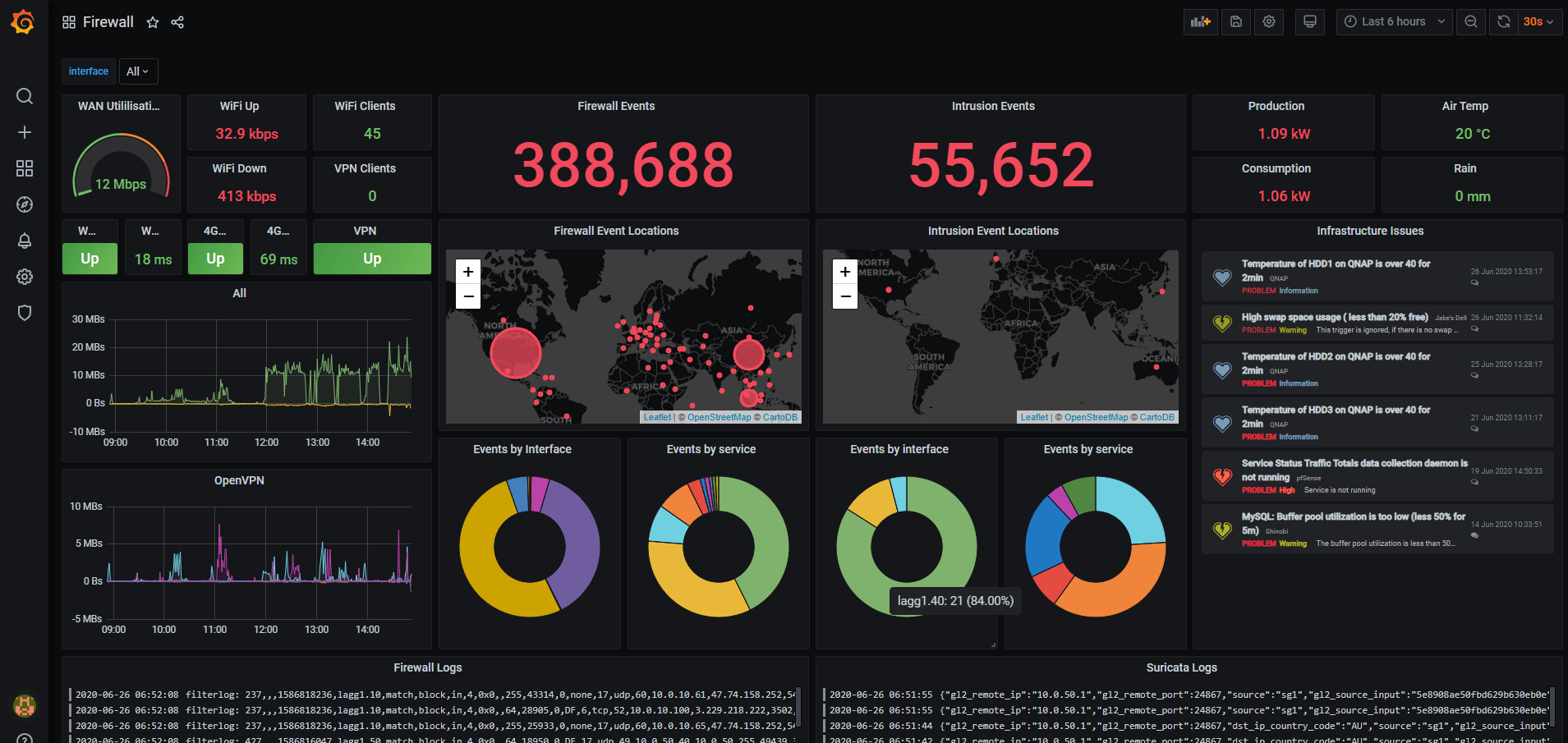
Key Features:
- Firewall and Router: Advanced firewall capabilities with stateful packet filtering, network address translation (NAT), and routing functionalities.
- VPN Support: Comprehensive VPN options, including IPsec, OpenVPN, and PPTP, to secure remote connections.
- Traffic Shaping: Bandwidth management and traffic prioritization to ensure optimal network performance.
- High Availability: Features like CARP (Common Address Redundancy Protocol) for failover and redundancy, ensuring network reliability.
- Extensible Platform: A modular design that allows users to add packages for enhanced functionality, such as intrusion detection systems (IDS), proxy servers, and more.
Pros:
- Highly customizable and flexible due to its open-source nature.
- Cost-effective solution with extensive feature set.
Cons:
- Steeper learning curve for less technical users.
- Requires more manual configuration and maintenance.
- Community support can be inconsistent, requiring reliance on forums and user communities.
Pricing:
Its business tier pricing starts at $349. However, it’s not declared if it’s a per month or one-time pricing.
Lower-end pfSense appliances from Netgate have shown themselves to be a bit flaky. They will lock up on updates, or sometimes lock up for no reason at all. When this happens, we’ve noted that even a reboot of the system doesn’t bring it back online and it must be accessed via emulated serial console (over USB) in order to manually walk it through a startup sequence. This is extremely problematic at remote/unstaffed locations.
I love Netgate. I use it at home. It does all the enterprise things. Though, in an enterprise environment , Netgate isn’t really in the conversation. But 500 devices is kind of in the in between and if budget is a concern, a higher end Netgate will be just fine. Though, you should really know what you’re doing. It doesn’t have guard rails built in.
Why Are Professionals Considering Alternatives to Fortinet?
Professionals are increasingly looking beyond Fortinet due to several recurring issues that impact their operations.
Integration and Firmware Challenges
Users often struggle with the integration of Fortinet products, particularly after firmware updates. One user noted:
I really wish I can use Fortinet products for everything, single pane of glass and all. But the integration experience is bad. It’ll work after some serious effort, sure. The headache increases exponentially once we go into full Fortinet deployments, including switch and AP. It’s almost as if I need to find the magic combination of firmware for FGT, FSW, FAP.
This inconsistency in product integration and firmware reliability is a key reason professionals are exploring other vendors.
Support Deficiencies
The lack of direct support from Fortinet is another major concern. As one user pointed out:
I would rate Fortinet Wireless three out of 10… There is no direct person involved from the Fortinet side to give client support. They depend on the mediator or integrators or suppliers.
This reliance on third parties rather than direct support from Fortinet leads to dissatisfaction and drives users to seek alternatives that offer more direct and reliable customer service.
Stability and Performance Issues
Firmware stability is a critical issue for many users. One review highlighted:
New code takes a 1+ year to be stable and almost 2 years to be marked as mature. So you may not get those cool new features in production for a long time.
This delayed stability impacts productivity and is a significant factor in why professionals are moving away from Fortinet.
Security and Feature Limitations
Fortinet’s security features have also been criticized, particularly regarding their handling of Linux environments. A user shared:
Their Linux agent is running in Kernel space, which poses higher risk of instabilities… Top notch competitors are running in user-space and utilizing eBPF to monitor kernel space to have the same sight, yet be more stable.
These limitations, along with the lack of critical features like TAC-supported VPN-only options, push professionals to consider more comprehensive solutions from other providers.
Our Final Verdict?
Choosing the right security solution depends on your business needs.
- Heimdal® excels in proactive threat prevention and automated patch management, making it ideal for businesses seeking user-friendly, advanced protection.
- Cisco offers extensive, high-performance security products but can be costly for SMBs.
- Palo Alto Networks leads in cloud security and innovation but requires skilled management.
- Sophos provides simplified, centralized security management, while Check Point offers unified security with advanced threat prevention.
- Juniper Networks delivers scalable, high-performance solutions, and Barracuda is known for affordability and ease of use.
- SonicWall offers comprehensive features with straightforward management. WatchGuard stands out for multi-layered security tailored to SMBs, and Netgate pfSense offers highly customizable, cost-effective open-source solutions.
Understand and evaluate your specific needs, budget, and IT capabilities to find the best fit among these Fortinet competitors.
Frequently Asked Questions (FAQs)
Which is the best Fortinet alternative?
Heimdal® is a solid Fortinet alternative. It offers advanced threat detection and prevention using machine learning and behavioral analysis. Heimdal’s comprehensive endpoint protection secures all devices within an organization, and its robust DNS security blocks malicious websites, phishing attempts, and malware. Plus, with easy integration and a user-friendly interface, managing and monitoring security measures is straightforward. Heimdal’s proactive approach and versatile solutions make it a compelling choice for businesses looking for an effective Fortinet alternative.
Why is Fortinet falling?
Fortinet is falling because the shares of Fortinet fell as the company’s billings fell below Wall Street’s estimates, a potentially negative sign for future results.
Has Fortinet been hacked?
Attacks by a China-linked hacking group in 2022 and 2023 led to the compromise of at least 20,000 Fortinet FortiGate devices, according to the Dutch military intelligence service.
